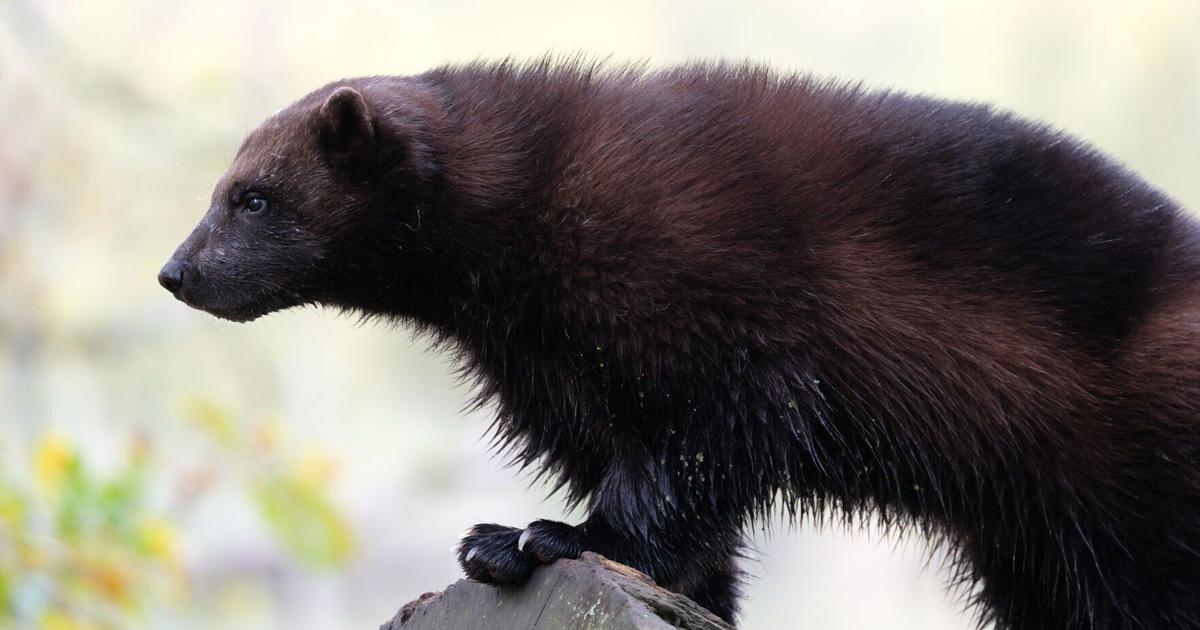
Montana Republican U.S. Reps. Matt Rosendale and Ryan Zinke and U.S. Sen. Steve Daines want the Biden administration to delay a federal decision to potentially list North American wolverines under the Endangered Species Act (ESA).
They are objecting to the Biden administration potentially using climate change concerns to list wolverines as a threatened species. Reduced snowfall and snowpacks adversely impact wolverine population, according to the U.S. Fish & Wildlife Service and conservation groups.
The GOP trio wrote U.S. Fish and Wildlife Service Martha Williams Nov. 17 asking that a decision on whether to list wolverines as threatened under the ESA be delayed 120 days.
A Nov. 27 deadline related to the wolverine’s ESA status is approaching per a court order. The Trump administration denied environmentalist and conservation groups’ efforts to get wolverines protected status in 2020.
“A postponement is necessary because the proposal is based largely on faulty conclusions drawn from climate predictions instead of a thorough assessment of population data. Any decision about placing or removing a species on the ESA must be based on updated population data, not potential climate effects on a portion of the habitat. Under federal statute, ESA determinations must (be) made “solely on the basis of the best scientific and commercial data available…after conducting a review of the status of the species,” Daines, Zinke and Rosendale said in their correspondence.
There are an estimated 318 wolverines left in the continental U.S., according to a report from the U.S. Fish & Wildlife Service in September.
“Uncertainty over the wolverine’s future condition in the contiguous U.S. is relatively high. Key questions remain around gene flow between the U.S. and Canada, core habitats and key dispersal corridors among core areas of the contiguous U.S., and the effective population size in the contiguous U.S.,” the USFWS report reads.
“Nevertheless, the best available information suggests that habitat loss as a result of climate change and other stressors are likely to impact the viability of wolverines in the contiguous U.S. through the remainder of this century.”
Wolverines are cousins to weasels, otters, badgers and ferrets.
Conservation and environmental groups — including Defenders of Wildlife, EarthJustice, Center for Biological Diversity (CBD) and Endangered Species Coalition — have long pressed for federal protections for wolverines.
They point to climate change and reduced snowpacks in the U.S. as part of the reason to give protections to wolverines, who require snowpacks to raise their offspring. The decision could foretell more federal ESA protections based on climate changes and extreme weather – and more fights with Republicans and industries impacted by those moves.
Wolverines’ numbers are better in Canada and Alaska though the CBD says wolverine numbers have been adversely impacted historically in the continental U.S. by trapping and development.
The Biden administration could give wolverines “threatened status” which is the next step down from endangered but still foresees potential extinction.
Other wildlife and species deemed threatened under U.S. and international endangered species laws include grizzly bears, gray wolves, American crocodiles, Florida panthers, emperor penguins, wood bison and gopher tortoises.
ESA status gives the federal government more power to require conservation plans and to impose regulations to preserve endangered and threatened species. That can impact ranchers, farmers, real estate developers, mining operations and winter recreation activities.
Last May, a federal judge ordered the U.S. government to reconsider wolverines’ protection status after environmental groups challenged the Trump administration decision. The order’s deadline is Nov. 27.
The Montana GOP lawmakers want to push the decision into 2024.
“The wolverine is a remarkable resilient animal, and it cannot be listed on the ESA without ample evidence. The Service has not met the criteria to issue a new final determination over the past 18 months—they should either not list the wolverine at all or substantially delay a final determination,” Rosendale said in a statement.
Zinke, who served as U.S. Interior Secretary in the Trump administration from 2017 to 2019, said the wolverine push is a federal overstep.
“Once again, the Biden administration is trying to control Montana and I won’t stand for it. Just like with the grizzly I believe Montana knows better than D.C. bureaucrats how to manage our wildlife and habitat. This overreach by the Biden admin is not based on science, it’s based on their agenda to control our land, water, wildlife, and way of life,” Zinke said.
